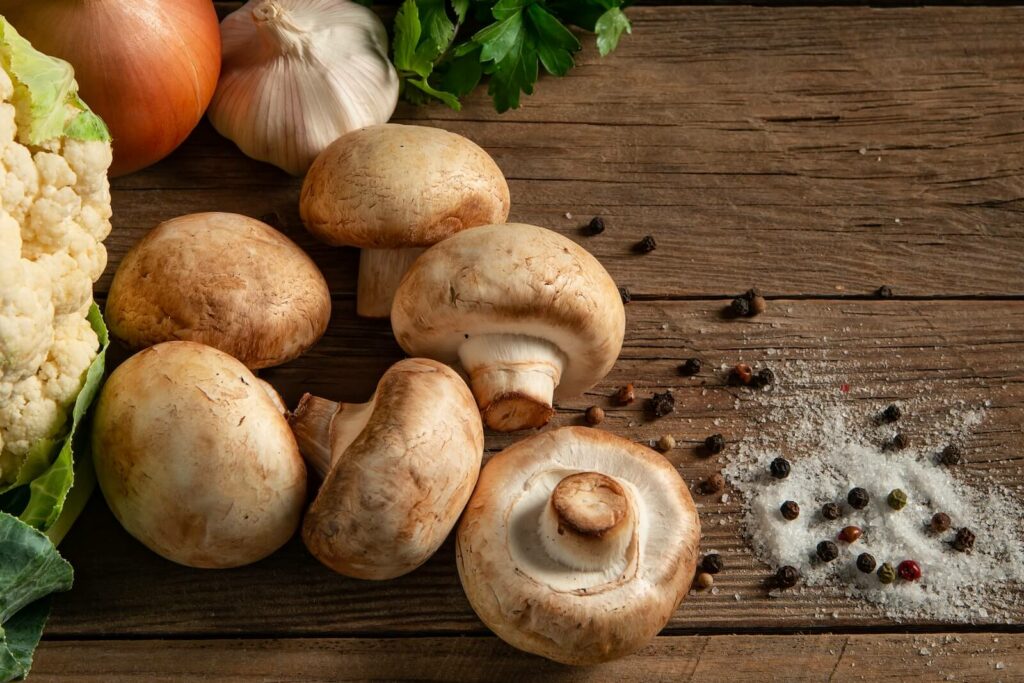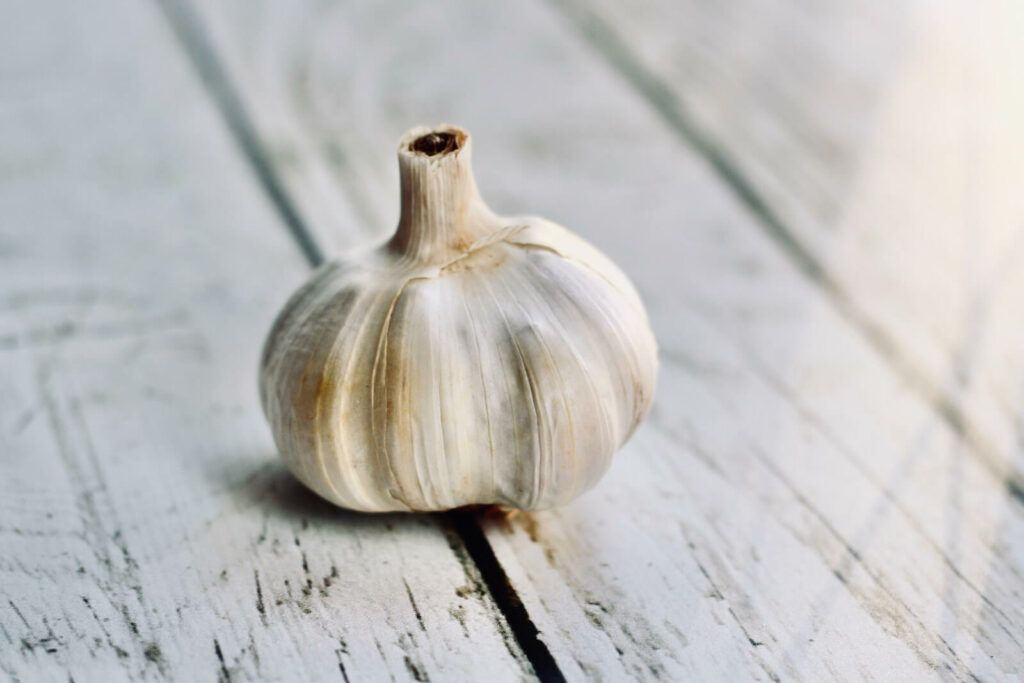Garlic salt vs. garlic powder – What’s the difference? There is a lot of confusion amongst home cooks regarding these 2 ingredients, and it’s easy to see why! Garlic salt and garlic powder are sometimes (incorrectly) used interchangeably in recipes, but they have some key differences that you should know about before using them in your cooking. In this article, we will discuss what each one is, how they’re different from one another, whether or not you can use them interchangeably, their health benefits and which one might be better for you depending on your needs. So let’s get started!
What is garlic salt?
Garlic salt is a combination of granulated garlic and table salt. If you were to combine just these two ingredients, your garlic salt would be very strong with serious flavor that might not work well in all recipes. That’s why most brands will also add anti-caking agents such as sodium aluminosilicate or calcium silicate (these are totally safe) which help prevent clumping so you can use the seasoning more easily on your food.
What is garlic powder?
Garlic powder contains dehydrated granulated garlic – it doesn’t have any additives like table salt often does. You may see some brands adding fillers, but for the most part, they’re made from pure ground-up dried garlic cloves – nothing else! So this means garlic powder is stronger and more potent than garlic salt, which means you have to use less of it in your cooking.

Garlic salt vs. garlic powder – What are the main differences?
Garlic salt and garlic powder are both made from dehydrated granulated garlic, but that’s where the similarities end. They have different levels of potency (garlic salt is generally much weaker because it has table salt in it), they taste slightly different, and you can’t really use them interchangeably without adjusting some other ingredients since their flavors tend to vary a bit as well.
Garlic salt vs. garlic powder – Is the flavor similar?
Garlic salt has a much more mild and mellow flavor than garlic powder. This is because it’s cut with table salt, which balances out its potency. Garlic powder on the other hand tends to be stronger since there isn’t any anti-caking agent or filler like you see in many brands of garlic salt – just pure dried ground up dehydrated cloves!
Can they be used interchangeably?
No – not unless you’re a pro and know how to adjust the other ingredients in your recipe. If you use garlic powder instead of garlic salt, it will be much stronger! You’ll probably want to do something like reduce or omit any additional salt in your recipe (since there’s already plenty from the garlic powder), increase the amount of actual minced or chopped fresh garlic used, and/or add some extra herbs like parsley for balance.
However, there is one thing to keep in mind – if the recipe calls for just “garlic” it’s very likely that they mean fresh minced or chopped garlic cloves and not either of these products. So remember to adjust your amounts accordingly!
What are the health benefits of eating garlic?
Garlic is a nutritional powerhouse! It contains vitamin B and selenium which are both necessary for proper thyroid function, it has antioxidants like allicin which help fight disease-causing free radicals in the body (similar to how they work when you grind or chop garlic), and there’s evidence that suggests the regular intake of this delicious herb can reduce your risk of developing several types of cancer.
Here are a few other areas where eating garlic could help that we’ve discovered so far:
- Cold and flu
- Harth diseases
- Antibiotic properties
- Anti-inflammatory properties
- Cholesterol
- May prevent cancer
Since garlic salt contains a lot of added table salt, it’s probably not the best thing to eat all the time. However, moderate amounts are likely okay and won’t hurt you (unless you have high blood pressure or some other medical condition that requires you to avoid too much sodium).

What are other substitutes?
There aren’t any good substitutes for garlic salt because it’s generally made from a mixture of pure dehydrated granulated garlic and table salt. If you want to make your own, just combine equal parts dried ground up (dehydrated) garlic cloves with kosher or sea salt in whatever proportions suit your tastes!
Garlic powder is an easy substitute since the flavor profile isn’t very different – this will change the potency slightly though so be prepared to adjust other ingredients if necessary. You can also add some grated fresh minced or chopped garlic cloves into recipes that call for powdered (just note that they won’t dissolve easily like they would when using onion powder).
Which one is better?
Given all of the above information, which should you use – garlic salt or garlic powder? It’s really up to you, but if we had to pick one it would be the latter. Garlic is a nutritious and delicious herb that has many beneficial health effects, so using fresh whole ingredients whenever possible might help you achieve your dietary goals more easily!
Final thoughts
Now that we’ve explained the main differences between them (and how you can use both safely), hopefully, this article has helped clear things up a bit! With all of this information under your belt, it should be much easier to tell which is which in recipes where either ingredient might be used…so go ahead and experiment with your favorite homemade dishes while using whichever type suits you best! Thanks for reading, and happy cooking!
